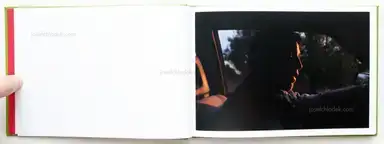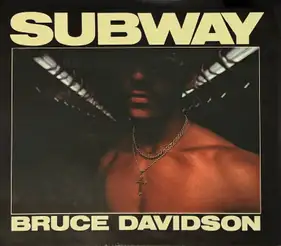Jesús Blesa - Camino Viejo, ACMA, 2014, Blesa

Jesús Blesa - Camino Viejo, josefchladek.com

Sample page 1 for book "Blesa, Jesús – Jesús Blesa - Camino Viejo", josefchladek.com

Sample page 2 for book "Blesa, Jesús – Jesús Blesa - Camino Viejo", josefchladek.com

Sample page 3 for book "Blesa, Jesús – Jesús Blesa - Camino Viejo", josefchladek.com

Sample page 4 for book "Blesa, Jesús – Jesús Blesa - Camino Viejo", josefchladek.com

Sample page 5 for book "Blesa, Jesús – Jesús Blesa - Camino Viejo", josefchladek.com

Sample page 6 for book "Blesa, Jesús – Jesús Blesa - Camino Viejo", josefchladek.com

Sample page 7 for book "Blesa, Jesús – Jesús Blesa - Camino Viejo", josefchladek.com

Sample page 8 for book "Blesa, Jesús – Jesús Blesa - Camino Viejo", josefchladek.com

Sample page 9 for book "Blesa, Jesús – Jesús Blesa - Camino Viejo", josefchladek.com

Sample page 10 for book "Blesa, Jesús – Jesús Blesa - Camino Viejo", josefchladek.com

Sample page 11 for book "Blesa, Jesús – Jesús Blesa - Camino Viejo", josefchladek.com

Sample page 12 for book "Blesa, Jesús – Jesús Blesa - Camino Viejo", josefchladek.com
Other books tagged Landscape (see all)
Other books tagged Spanish (see all)
Hardcover, including a DVD. Front cover illustration by Laura Liz, text by Carmen Villar Cortés
We are living turbulent times in which society is trying very hard to find a place that allows it to recover a dignity depleted by the current situation characterized by the risk and the uncertainty spurred by the economic crisis.
In this so-called information and knowledge society, most of the population opts for the city since it offers more socioeconomic advantages in advance, something priority nowadays for obvious reasons. Hence and because of the current economic situation into which Spain is plunged, more and more young people have decided to look for their livelihood abroad.
In principle, a large urban area offers more job opportunities, a greater cultural offer and products and services which suit all tastes, as a consequence many youngsters begin their journey towards the city as an essential condition to succeed and to develop as individuals economically as well as socially. The necessity to live in a place where the labour supply is bigger takes precedence over any other alternative approach.
According to the workshops carried out by the Spanish Federation of Municipalities and Provinces (FEMP) in 2012, in Spain there are more and more municipalities and provinces which, due to their rural features, in the latest fifty years have lost more than forty per cent of their population to the lure of bigger cities.
However, given the present economic situation, the Spanish cities cannot respond to every youngsters' project of life. According to data published by the Spanish National Institute of Statistics (INE) on the 1st of October 2012, in the year 2011 the migration tendency reversed for the first time after many years, and in the first term of the mentioned year there was a negative migration balance of 20,484 people.
Consequently, ever since nearly a year there are more people going out of the country than are coming in, something very unusual in recent times. Therefore nowadays we can state that Spain is no longer a predominantly receptive country and Spaniards have become emigrants again. Thousands of Spaniards, mainly young people, emigrate in pursuit of the employment opportunities that they cannot find in their country. As stated by the latest Survey of the Working Population, the youth unemployment rate is above fifty per cent.
For most people around the world, the city is still the option that offers more possibilities in order to develop their project of life. They believe that their dreams will come true in the big city, but not always is it so.
Contrary to what could have happened just two decades ago, the decision of living in a rural area does not involve relinquishing any social, technological or cultural advance.
Old Road is a desire of showing that a different way of living is possible and of making more people believe that returning to the village not only is not a failure, but it is maybe the option which gives them back their dignity and their smile. Day by day, Javi, the protagonist of this story, looks towards the future optimistically and gives priority to fighting for finding out what his milieu offers him in order to improve the quality of his life, and the satisfaction that he gets from living in a small rural area. Therefore, this story does not only show a man who, before this situation, has found his absolute dignity out in this rural area, but a person who has known how to relinquish the values imposed as a social success in pursuit of his decision of living happily. Currently, although from both a sociological and, above all, a media point of view, the concept of success is restricted only to an urban idea, he has chosen in what way he wants to be successful, and this rural environment is the perfect setting for developing his project of sustainable lifestyle.
Javi has found out what is really necessary to live in accordance with certain values not too encouraged or even unknown at all by the youngsters nowadays. Sacrifice, effort, perseverance; in short, learning how to optimize the resources of the environment has become his leitmotiv. Returning to his village, something that for many could mean a failure, is his option to live according to his decision, beyond any social or economic conventionalities. Our protagonist has a simple life, which does not imply isolation, but assessing coherently what he really needs in life and obtain it in his milieu.
Contrary to what a priori could seem to many other youngsters, the option of coming back to a rural area does not represent a return to the past, but a different present.
Order at www.jesusblesa.com.
Pages: 58
Place: Casasimarro
Year: 2014
Publisher: ACMA
Size: 24 × 17 cm (approx.)































